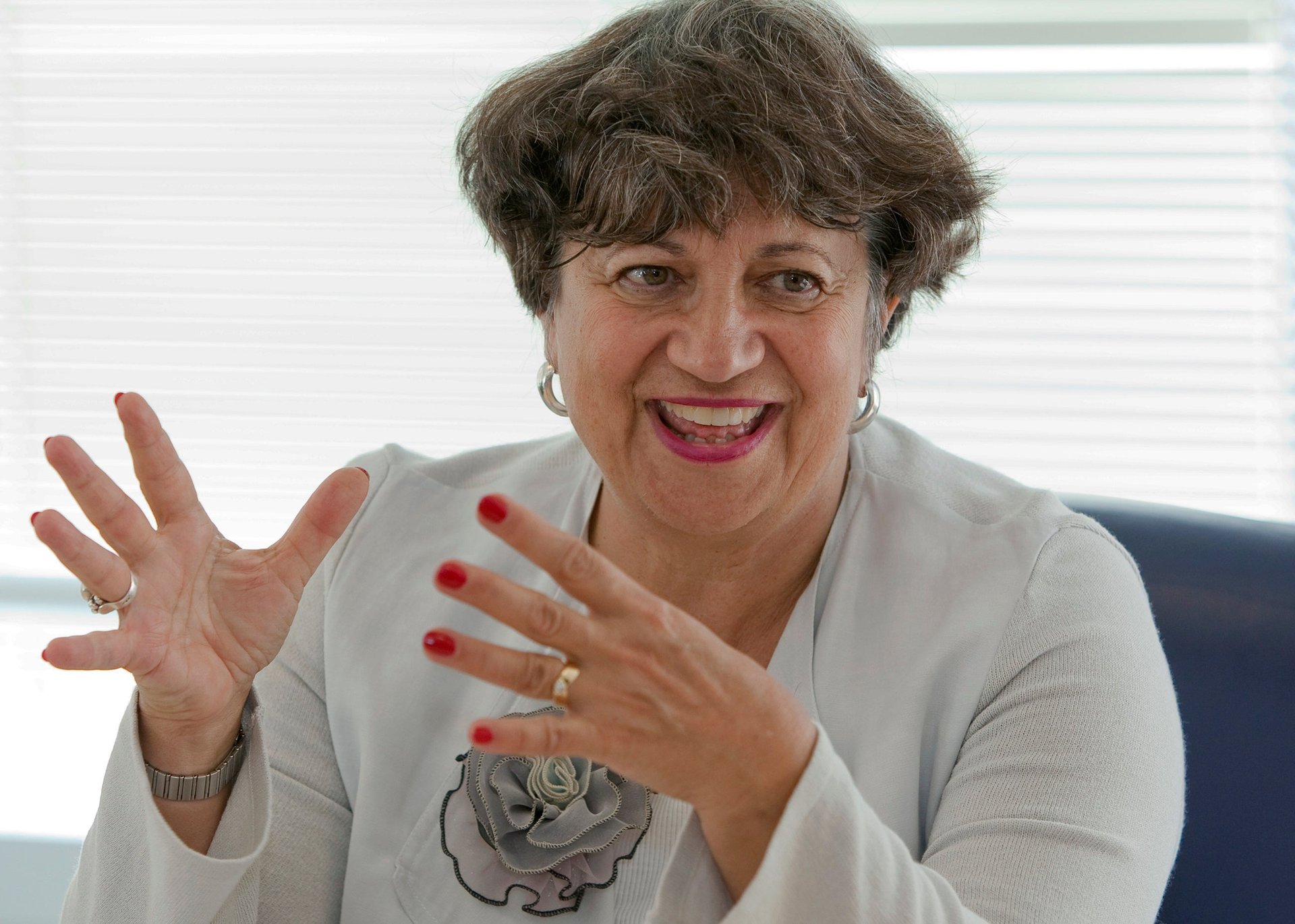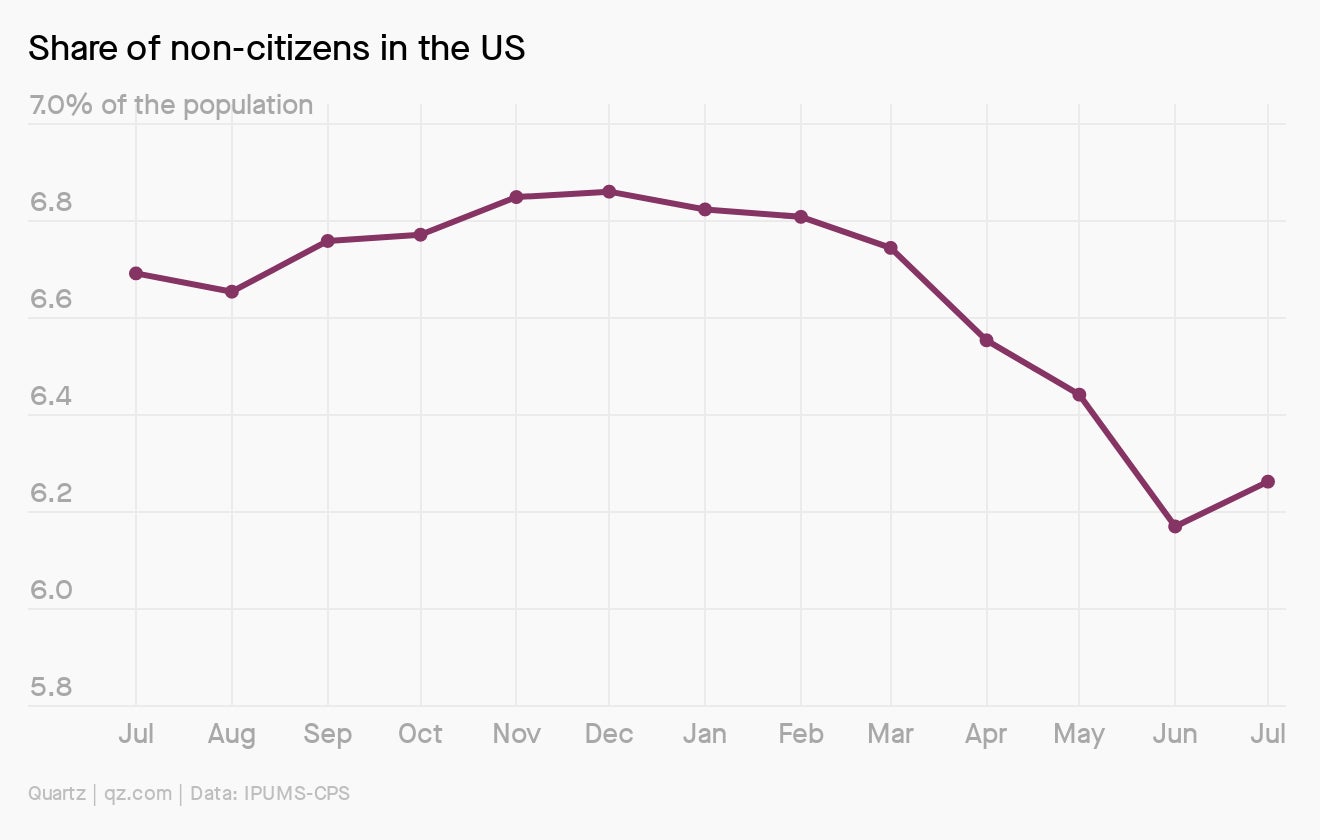Gmail down, foreigners return home, costly decimal-point error
Good morning, Quartz readers!

Good morning, Quartz readers!
Here’s what you need to know
Gmail has been down for many users. Following reports of outages all over the world, Google confirmed there’s a problem with several of its apps, and said that it has been investigating. Gmail has been the world’s most popular email service since 2012, when it overtook Microsoft’s Hotmail.
Huge fires are raging across the Bay Area. Thousands of people have been evacuated and more than 100 homes destroyed by several uncontrollable blazes in northern California, each sparked by lightning. There is also extensive damage to California’s oldest state park, Big Basin Redwoods.
Michigan is reportedly preparing a major settlement for Flint. According to the Wall Street Journal (paywall), state officials are set to give residents of the city, whose water has been tainted with lead for years, a total of $600 million later this week to settle thousands of civil claims.
Portland police declared a riot for the second consecutive night. They fired pepper balls and set off smoke devices to control a crowd of around 200 people who had gathered near an Immigration and Customs Enforcement (ICE) building. The US city, which has a small Black population, has remained on the frontline of protests for racial justice.
A Russian opposition leader is unconscious in hospital with suspected poisoning. A spokeswoman for Alexei Navalny, a high-profile critic of president Vladimir Putin, said she believed his tea had been contaminated. His flight had to make an emergency landing in Siberia.
Obsession Interlude: Person of interest

To seamlessly navigate a Quartz obsession, it helps to know whom to follow. Here’s one key figure shaping the climate economy.
Mary Nichols is the world’s most powerful environmental regulator you’ve never heard of. The Yale-trained lawyer serves as the chair of the California Air Resources Board. From her perch presiding over air quality regulations in the world’s fifth largest economy, she has influenced climate policy in more than a dozen US states that have adopted California’s strict vehicle emission standards, which go beyond federal requirements. China, too, has modeled its carbon-trading scheme on California’s.
Go deeper into the fate of fossil fuels, and keep an eye on Quartz’s Climate Economy obsession.
The coup d’etat in Mali

Mali’s president Ibrahim Boubacar Keita resigned this week, hours after he was detained by military officers following months of mass protests against corruption and escalating insecurity in the country, where Islamic militants have been active since 2012, writes Chidinma Irene Nwoye. Calling themselves the “National Committee for the Salvation of the People,” the mutineers called on Mali’s civil society and political movements to join them in creating conditions for a political transition.
For more coverage of the continent—from Nigeria’s new startup hubs to Zimbabwe’s compensation to displaced white farmers—subscribe to the Quartz Africa Weekly Brief.
Charting foreign populations in countries around the world
One in 10 people living in OECD countries were foreign nationals in 2018. Many are no longer there. Covid-19 is pushing immigrant workers out of their adopted homes and pulling them back to their homelands.

This is a global trend. Quartz Things reporter Youyou Zhou digs into data from Japan, China, the UK, Germany, and Canada to show how a global recession and a global pandemic make it unlikely for immigration to resume at that scale anytime soon. The question is how long countries can afford to lose immigrants.
A tragic timeline
Beijing has lost patience with the Hong Kong government. The new national security law transformed the city overnight from a relatively free place to one where it’s possible to be arrested for shouting a slogan. This is how it happened:
April 17: Beijing’s liaison office in Hong Kong declares that it has full authority to weigh in on Hong Kong’s affairs, going against two decades of legal precedent.
May 28: China’s legislative body approves the decision to draft a national security law for Hong Kong.
June 18: While Hong Kong remains in the dark about the law’s provisions, it is heavily marketed in the city as a good thing that will only affect a few people.
June 30: President Xi Jinping signs the law. Hong Kong residents read its language for the first time hours before it goes into effect. Turns out, it covers everybody on earth.
Read the full timeline of events that led to this moment as part of our field guide on Hong Kong’s global fight.
✦ Becoming a member directly supports the work we do—including those who report on the unfolding situation from Hong Kong—and gives you access to every bit of it. Join us for 50% off your first year by using code “SUMMERSALE”.
We’re obsessed with laam caau
Burning down the house. Laam caau (pronounced “lahm tsow,” with the “ow” sounding like “how”) is a strategy that a sizable fraction of Hong Kong protesters believe is the only method that gives them a fighting chance against their formidable authoritarian foe, the Chinese Communist Party. Imagine the little guy gripping on to a fearsome opponent as they wrestle to the death, with the two of them eventually tumbling off a cliff and crashing down in mutual destruction. One might describe it as an “if we burn, you burn with us” philosophy—it’s a risky approach and may well backfire, but protesters feel they have no choice. The Quartz Obsession invites you to make a wager.
Surprising discoveries
It’s time for your government-mandated walk. Germany is debating a law to require dogs to be walked twice daily.
Chinese sci-fi films are getting new rules, too. China’s Communist Party encourages filmmakers to “highlight Chinese values.”
Your phone can help pick locks. It can record audio at a level of detail high enough to produce a working copy of a key.
Citibank made a costly decimal-point error. It accidentally sent a hedge fund $175 million instead of $17.5 million, and is trying to get the money back.
No, but thanks anyway. You can get beer flavored with Dunkaroos.
Our best wishes for a productive day. Please send any news, comments, proper beer, and smartphone-proof locks to [email protected]. Get the most out of Quartz by downloading our app on iOS and becoming a member. Today’s Daily Brief was brought to you by Hasit Shah, Susan Howson, and Max Lockie.